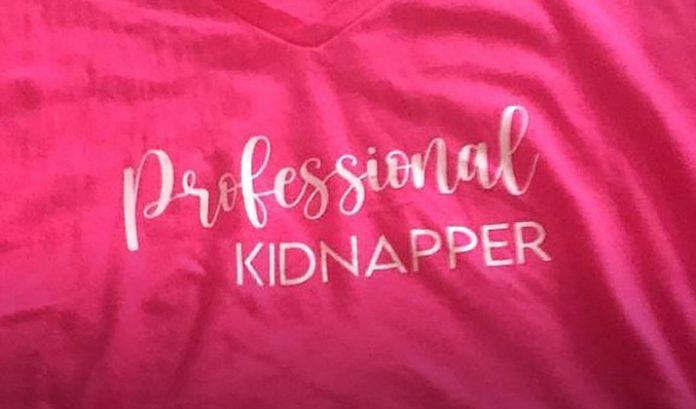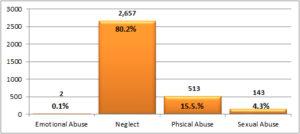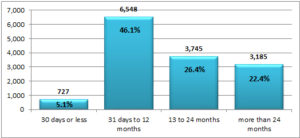
Several child welfare workers have been fired at the Prescott Arizona Department of Child Safety. According to AZCentral, the office has only one investigator left after several were fired for wearing t-shirts that said “Professional Kidnapper” on them and posting the pictures to social media. The shirts were posted on Facebook and were also worn during work hours. The bright pink t-shirts also said, “Do you know where your children are?” on the back. The shirts were allegedly made as a joke, attempting to poke fun at critics’ portrayal of DCS.
According to Christina Sanders, a former DCS unit supervisor, the firings were overdue. She recognized some of her former coworkers in the pictures. When she saw the images on social media, she emailed DCS Director Mike Faust. Sanders stated, “They think they’re so untouchable, they don’t think they can get caught.” She also blames the staff’s supervisors for tolerating that behavior because the agency is always in need of workers.
This type of behavior is not seen as a joke from parents who feel they have had their children wrongfully taken by the department. According to PJMedia, parents in Arizona have regularly accused government agencies tasked with child welfare of illegally kidnapping their children and denying them their due process rights, especially when it is deemed neglect. Many parents feel the term is too vague.
According to FindLaw, Arizona defines neglect as “the inability or unwillingness of a parent, guardian, or custodian of a child to provide that child with supervision, food, clothing, shelter or medical care if that inability or unwillingness causes unreasonable risk of harm to the child’s health or welfare. One exception to this rule is if the parent, guardian, or custodian is unable to provide services to meet the needs of a child with a disability or chronic illness because reasonable services are unavailable.” Neglect can also be charged if there are toxic substances around children or if a newborn infant was exposed prenatally to drugs or toxic substances.
Others argue that parents and caregivers who get into this system sometimes have a hard time getting out. Many times, if a parent is charged with “neglect”, public defenders are not available because they haven’t been accused of a crime. Instead, the children and parents work their way through a family court system where they must prove themselves innocent in a system with low standards of evidence. Many of the families describe being bankrupted, trying to get their children returned, and the process can take well over a year.
Ashley Thompson is a recovering addict who had her children removed by the Prescott office. She contacted PJM and made a statement. “It was completely disheartening to know these are the people who have control over my children’s needs and well-being right now. I completed treatment, all services, still testing, and I have my youngest son back. DCS has my children separated, in two different foster care homes, over two months later.” She went on to state, “Changes need to be made. It just shows that the attitudes of the caseworkers are so disempowering toward parents.”
One way to the state of Arizona and the nation tries to protect children who are in the foster care system is through CASA. CASA stands for Court Appointed Special Advocate. Other states call the same program GAL, which stands for Guardian Ad Litem. According to their website, CASA volunteers are everyday people appointed by a judge to speak up for abused and neglected children in court. These volunteers speak up, in the best interest of the child, during court proceedings when they have been abused or neglected. In Arizona, there are 15 county CASA programs. CASA and its volunteers have served over 25,000 children over 35 years.














